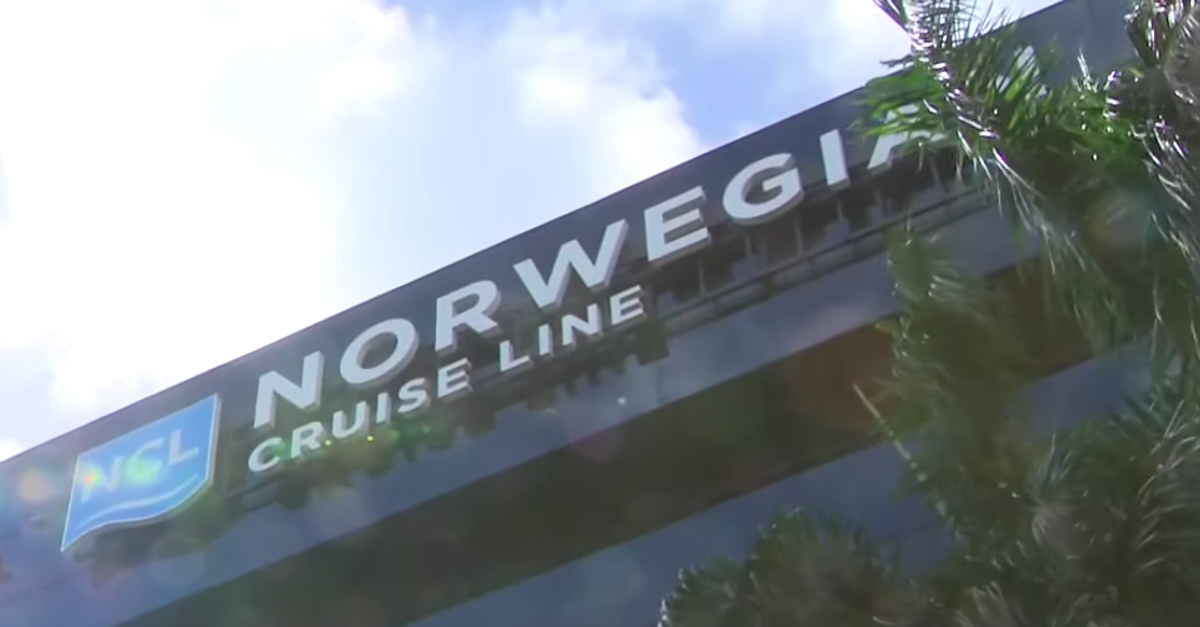
Due to the ongoing threat posed by the COVID-19 coronavirus, the Centers for Disease Control and Prevention (CDC) has warned Americans to avoid cruise ships, as the extended time in close quarters leaves passengers particularly vulnerable to contagions (see: various cruise ship quarantines). Norwegian Cruise Line (NCL) customers who called the company over concerns about the now-global pandemic, however, were given false information about the virus in an effort to convince them that it was safe to travel on their ships, the Miami New Times reported Wednesday.
Emails obtained by the New Times revealed that a senior sales manger at the company’s Miami office provided employees in the sales department with scripted lines containing patently false information to rebut customers’ potential concerns about the virus.
“[T]hese are one liner’s [sic] to help you close your guests that are on the fence. DO NOT USE THESE unless the coronavirus is brought up,” the manager’s email stated, before posing hypothetical scenarios on how to reassure potential customers that they would not be in danger of contracting the virus if they booked an NCL cruise to a warm climate destination.
“The Coronavirus can only survive in cold temperatures, so the Caribbean is a fantastic choice for your next cruise,” read one of the patently false talking points.
Another line claimed that the coronavirus “cannot live in the amazingly warm and tropical temperatures that your cruise will be sailing to.”
Most egregiously, the email told the sales staff to say that “Scientists and medical professionals have confirmed that the warm weather of the spring will be the end of the Coronavirus.”
But according to the CDC’s website, the coronavirus is still too new for scientists to know what, if any, effect temperature will have on the spread of the virus.
“Some other viruses, like the common cold and flu, spread more during cold weather months but that does not mean it is impossible to become sick with these viruses during other months,” the website states. “At this time, it is not known whether the spread of COVID-19 will decrease when weather becomes warmer. There is much more to learn about the transmissibility, severity, and other features associated with COVID-19 and investigations are ongoing.”
In an email to Law&Crime, criminal defense attorney, former New York prosecutor and Law&Crime Network host Julie Rendelman said the report raises ethical concerns that could land NCL in civil court.
“We are still at the early stages of fully learning and understanding this virus. Nobody, including medical experts, have definitive answers yet as to whether the virus can survive in warmer climates,” Rendelman wrote. “To tell concerned potential passengers that they are safe to travel on a cruise line during this time, particularly when there have been multiple incidents of the virus spreading on such luxury boats, certainly raises some ethics questions and might even give rise to potential civil litigation if an individual were to contract the virus and there was proof that the person was infected when on the cruise ship.”
Texas criminal defense attorney Stephen Le Brocq expressed similar concerns to Law&Crime.
“I would have concerns that if customers contract the virus, there would be potential claims against the Cruise line for fraudulent inducement,” he wrote via email. “It would appear that the purpose of the marketing representations is not mere puffery, but rather, an attempt to take advantage of a horrible situation to profit at the potential expense of an innocent consumer. Bad idea.”
NCL declined to comment in the New Times report but apparently warned employees in an email that the publication was “working on a nasty story.” That email was then leaked to the news outlet.
President Donald Trump has said that he’s considering taking steps to help the cruise industry as business busts.
[image via YouTube screengrab]